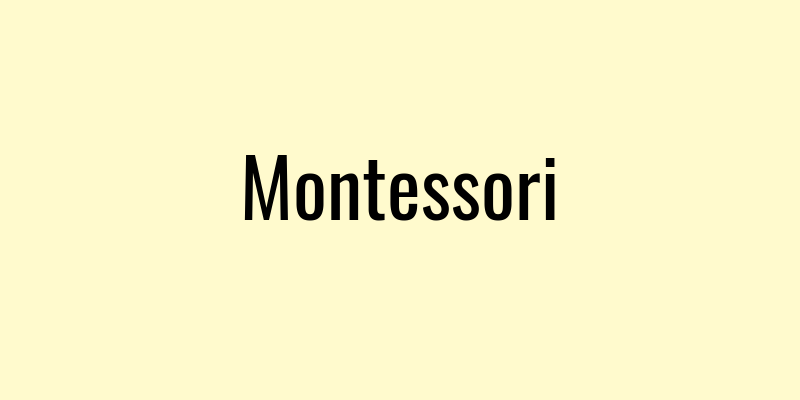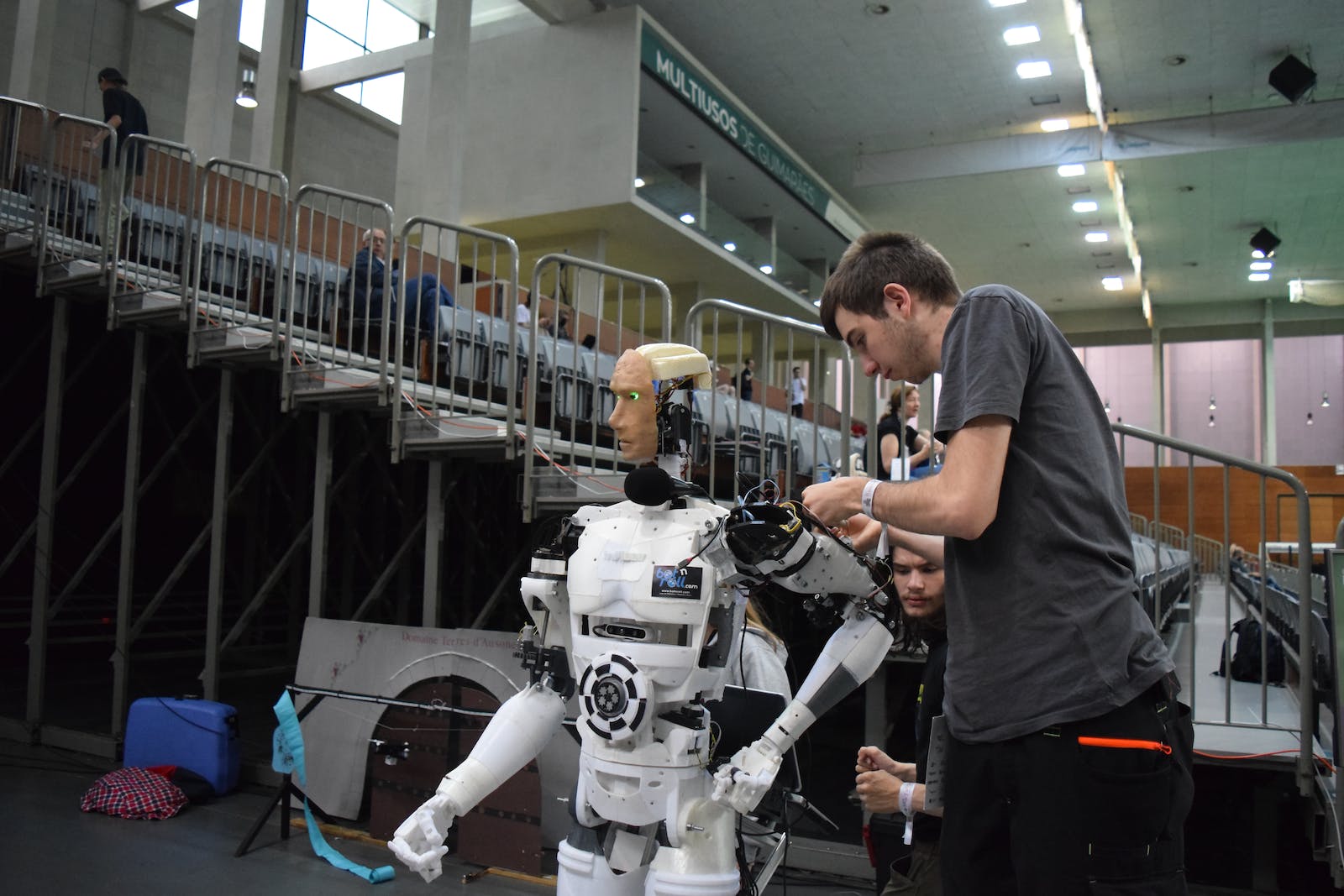Exploring the Advantages and Disadvantages of Montessori Education
Uncover the pros and cons of the Montessori approach
Montessori education has gained popularity over the years for its unique approach to learning and development. Founded by Maria Montessori, this educational method emphasizes independence, freedom within limits, and respect for a child’s natural psychological, physical, and social development. While it has its benefits, there are also drawbacks to consider. Let’s delve into the advantages and disadvantages of the Montessori approach to better understand this educational philosophy.
As we explore the advantages and disadvantages of Montessori education, it's important to recognize that the effectiveness of any educational approach may vary depending on the individual needs and preferences of students and families. By examining both the strengths and limitations of the Montessori method, families and educators can make informed decisions about the most suitable educational environment for children.
Pros
Discover the numerous advantages of Montessori education that contribute to the holistic development of children. From fostering independence to promoting hands-on learning experiences, the Montessori approach offers a range of benefits that align with children's natural growth and curiosity.
Promotes Independence and Self-Discipline
Montessori education empowers children to take charge of their learning and daily activities, promoting self-reliance and self-discipline. By allowing students to make choices within a structured environment, they develop a sense of autonomy and responsibility from an early age.
Individualized Learning Experience
The Montessori approach recognizes and accommodates diverse learning styles, pacing, and interests. Students have the freedom to explore subjects at their own pace, fostering a deeper understanding of concepts and enhancing their love for learning.
Cultivates a Love for Learning
By providing hands-on, experiential learning opportunities, Montessori education ignites children's natural curiosity and enthusiasm for learning. This approach encourages active engagement with materials and concepts, fostering a lifelong love for knowledge.
Holistic Development
Montessori education focuses on nurturing the whole child—cognitive, social, emotional, and physical development. Through a well-rounded curriculum and emphasis on practical life skills, children develop into independent, compassionate individuals.
Respect for Each Child's Pace
In a Montessori classroom, children are encouraged to progress at their own pace, free from comparison or pressure. This approach honors each child's unique development timeline, ensuring that learning is a positive, personalized experience.
Promotes Practical Life Skills
One of the key advantages of the Montessori approach is its emphasis on practical life skills. Through activities such as gardening, cooking, and cleaning, children learn essential skills that contribute to their independence and confidence. These practical experiences also foster a sense of responsibility and care for the environment, laying a strong foundation for their future development.
Encourages Creativity and Problem-Solving
Montessori education encourages creativity and problem-solving by providing children with open-ended materials and activities. This allows them to explore, experiment, and develop their imaginative and critical thinking abilities. By engaging in hands-on, self-directed learning experiences, children are able to cultivate their creativity and develop effective problem-solving skills from an early age.
Missing a pro?
Let us know which pro you are missing!
Cons
While Montessori education offers numerous benefits, there are also some challenges and potential drawbacks that warrant consideration. Understanding the limitations of this educational approach can help parents and educators make well-informed decisions about a child's educational journey.
Limited Emphasis on Group Activities
Montessori education's emphasis on individualized learning may sometimes limit opportunities for collaborative group activities, which are important for developing teamwork and social skills. Balancing individual exploration with group interactions is essential for holistic development.
Potential Lack of Standardized Testing Preparation
In traditional Montessori settings, the focus on individualized learning experiences may not align with the structured preparation required for standardized tests and assessments. This can pose challenges for students transitioning to environments that emphasize standardized curriculum and testing.
Availability and Accessibility
Access to Montessori education may be limited in some areas, making it challenging for families to enroll their children in a nearby Montessori school. Additionally, the cost of tuition at Montessori institutions can be prohibitive for some families, impacting inclusivity.
Teacher Qualification and Training
The effectiveness of Montessori education hinges on well-trained educators who understand and implement the philosophy effectively. Ensuring that teachers possess appropriate Montessori certifications and training is crucial for maintaining the integrity of the educational approach.
Transition Challenges
Switching from a Montessori environment to a traditional educational setting or vice versa can pose challenges for students as they adapt to different learning methodologies, classroom dynamics, and expectations. Smooth transitions between educational systems are vital for student success.
Limited Focus on Technology Integration
One potential disadvantage of the Montessori approach is its limited focus on technology integration. In today's digital age, technology plays a significant role in education and everyday life. Some parents may be concerned that a Montessori education does not adequately prepare children for the technological demands of the modern world, potentially creating a gap in their technological literacy compared to peers from more tech-integrated educational settings.
Challenges in Evaluating Academic Progress
An important consideration regarding Montessori education is the challenge of evaluating academic progress within its non-traditional framework. The emphasis on individualized learning and non-competitive atmosphere makes it difficult to assess and compare a child's academic performance with standardized benchmarks. This can pose challenges for parents and educators in tracking and understanding a child's academic development within the Montessori model.
Missing a con?
Let us know which con you are missing!
Conclusion
In conclusion, the Montessori approach to education offers a range of advantages that cater to the diverse needs and learning styles of children. By prioritizing independence, personalized learning, and holistic development, Montessori education equips students with valuable skills and a lifelong love for learning. However, it is essential to address the potential limitations, such as accessibility barriers and the need for balanced social interactions, to ensure that the Montessori environment remains inclusive and aligns with the evolving needs of students in a dynamic educational landscape.
What do you think?
Do you think the pros outweigh the cons?










